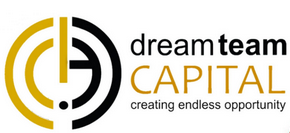Black Economic Empowerment (BEE) is a vital framework in South Africa aimed at addressing historical economic inequalities and promoting the involvement of black South Africans in the economy. Understanding who qualifies for BEE is essential for businesses wishing to comply with these regulations and enhance their market position. In this article, we will explore the qualifications for BEE, its significance, and how businesses can benefit from engaging with this transformative initiative.
What is BEE?
BEE is a policy initiative designed to encourage the economic participation of black South Africans. It seeks to promote ownership, management, and skills development among black individuals and groups. The BEE framework includes various elements, such as ownership, management control, skills development, and socio-economic development, which contribute to a business’s overall BEE score.
Who Qualifies for BEE?
1. Black Individuals and Groups
To qualify for BEE, individuals must meet the definition of “black” as outlined in the BEE Act. This includes:
- African: Persons of African descent.
- Coloured: Persons of mixed race.
- Indian: Persons of Indian descent.
- Chinese: Persons of Chinese descent.
2. Qualifying Small Enterprises (QSEs)
Qualifying Small Enterprises (QSEs) are defined as entities with an annual turnover between R10 million and R50 million. QSEs have different compliance requirements compared to larger companies, making it easier for them to qualify for BEE.
3. Exempted Micro Enterprises (EMEs)
Exempted Micro Enterprises (EMEs) are businesses with an annual turnover of less than R10 million. These enterprises are automatically considered to have a BEE status of Level 4 or higher, allowing them easier access to government contracts and opportunities.
4. Ownership Structures
Businesses must demonstrate a certain level of black ownership to qualify for BEE. This includes:
- Direct Ownership: A percentage of the business must be owned directly by black individuals.
- Indirect Ownership: Ownership through trusts, partnerships, or other structures may also count.
5. Management Control
To qualify for BEE, businesses need to show that black individuals are represented in management roles. This includes executive positions, board memberships, and senior management roles.
6. Skills Development
BEE compliance requires companies to invest in skills development for black employees. This can involve training programmes, internships, and mentorship initiatives aimed at enhancing the skills of black South Africans.
Who Qualifies for BEE and the Benefits of BEE Compliance
- Access to Government Contracts: Compliance with BEE regulations can open doors to government tenders and contracts, which often have BEE requirements.
- Improved Corporate Image: Companies that demonstrate commitment to BEE initiatives are viewed more favourably by consumers and partners, enhancing their brand reputation.
- Enhanced Market Opportunities: Many large corporations require their suppliers to have a good BEE rating, thus improving your chances of securing contracts.
- Social Responsibility: Engaging in BEE initiatives contributes to social equity and community upliftment, aligning your business with national goals.
How to Improve Your BEE Score
- Conduct a BEE Audit: Assess your current BEE status and identify areas for improvement.
- Implement Training Programmes: Invest in skills development for your workforce.
- Increase Black Ownership: Consider structuring your business to include more black shareholders.
- Engage with BEE Consultants: Professional guidance can help you navigate BEE requirements and enhance your compliance strategy.
Understanding who qualifies for BEE in South Africa is essential for businesses looking to thrive in a competitive environment while contributing to social and economic transformation. By embracing BEE principles, companies not only comply with legal requirements but also foster a more inclusive economy.
For assistance in accessing BEE funding & non-repayable grants – Contact DTC!



